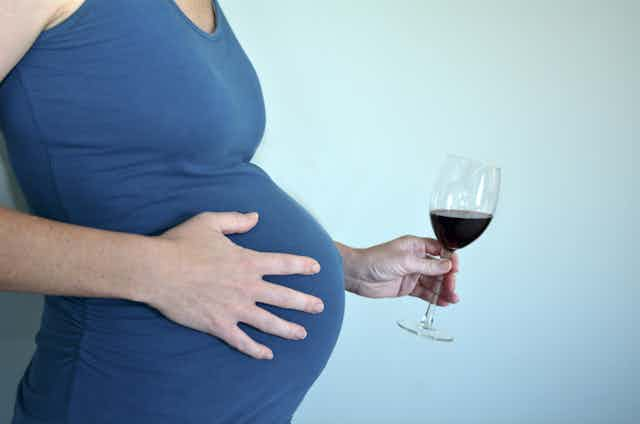Around 40% of Australian women drink alcohol while pregnant, despite medical guidelines recommending they don’t.
A study published in BMJ Open compared data of nearly 18,000 women across Australia, New Zealand, Ireland and the United Kingdom.
While the research found most women who reported drinking alcohol during pregnancy were likely to only have one or two glasses per week, 10% of women in Australia reported binge drinking while carrying a child.
However, the majority of women in all four countries had stopped drinking by the second trimester – most likely when they found out they were pregnant.
Heavy alcohol consumption during pregnancy is associated with Foetal Alcohol Spectrum Disorder (FASD), a range of developmental defects in a fetus that can result in lifelong neurological damage, growth problems and learning disabilities.
Researchers used data gathered from three different studies. One of these – the Screening for Pregnancy Endpoints study (SCOPE) – tracked alcohol consumption as “units consumed per week” in participants from the four countries. It found 40% of women drank during their pregnancy in Australia, 56% in New Zealand and 82% in Ireland.
But there was a marked drop in the number of women who consumed alcohol in their second trimester. In Australia, 38% of women drank in the first trimester compared to only 7% in the second. In New Zealand, the numbers dropped from 53% to 12%.
Study co-author and Professor of Obstetrics & Gynaecology at the University of Auckland, Lesley McCowan said it was likely many women who drank in the first trimester did so before they knew they were pregnant.
“The vast majority of Auckland women who drank in the first trimester stopped drinking at about six weeks, which is around the time women get positive pregnancy tests, or confirmation of their pregnancy,” Professor McCowan said.
She added that it was impossible to know whether alcohol’s effects on the fetus would be more pronounced earlier in the gestational period, because few studies had explored the timing of exposure.
“Alcohol crosses the placenta and can have an effect on the developing brain and other organs in early pregnancy, but functional brain development continues in the second and third trimester, so exposure later in pregnancy may also have adverse effects on development.”
Guidelines in Australia, New Zealand and Ireland recommend women avoid drinking during pregnancy, and if planning a pregnancy, as a precautionary measure to avoid harming the unborn child.
Professor of Paediatrics and Child Health at the University of Sydney, Elizabeth Elliott, was involved in revising Australian guidelines in 2009. She said it was concerning – but not surprising – that some women were still not following expert advice.
“We know that women are continuing to drink alcohol in pregnancy and certainly some studies in Australia have suggested that up to 80% of women still have some alcohol,” said Professor Elliott, who was not involved in the BMJ Open study.
“Previous guidelines suggested women could drink during pregnancy but no more than two drinks a day, no more than seven drinks a week and that they shouldn’t get intoxicated. They were quite difficult for women to understand.”
“We reviewed the evidence and found that we couldn’t establish what a safe level of intake was and indeed we’ll never establish that in human models. Hence we took the attitude that the safest option for women who are planning pregnancy, or are pregnant, is to avoid alcohol.”
The study also found that women who smoked were more likely to drink and Caucasian women drank more than those of other ethnic backgrounds.
But there was significant variance in findings across the three studies used. For instance, the number of women in Ireland who drank in the first trimester ranged from 20% to 80%, depending on the study from which the data was obtained.
Regardless of variance, Jane Halliday, Professor of Public Health Genetics at Murdoch Childrens Research Institute, said it was concerning women were drinking during pregnancy at all.
“No matter how you look at alcohol consumption, there seems to be a very high consumption of alcohol during pregnancy – albeit low and moderate levels,” said Professor Halliday, who was not involved in the study.
“There is considerable dispute about the effects of low and moderate alcohol consumption on the fetus. It’s an unresolved issue so the guidelines of abstinence is the best approach and further research is needed to really elucidate that.”

